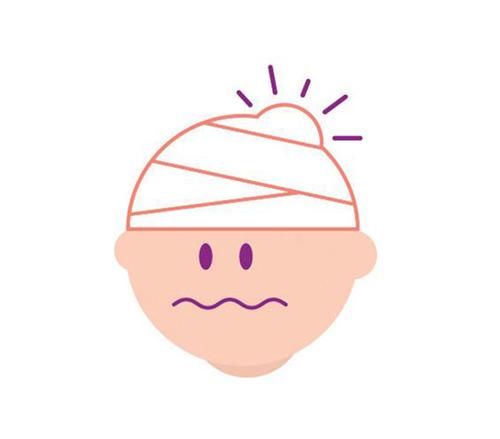You are here
Even mild brain injuries tied to lasting functional deficits
By Reuters - Jun 04,2019 - Last updated at Jun 04,2019

Photo courtesy of freepik.com
People who have mild traumatic brain injuries may be more likely to have lasting functional deficits that get in the way of daily activities than patients who experience other types of injuries, a US study suggests.
Although long-term cognitive and physical impairments are well known after-effects of moderate to severe traumatic brain injuries, doctors are less certain of the expected course of recovery for people with mild traumatic brain injuries, researchers note in JAMA Neurology.
The new study involved 1,154 patients with mild traumatic brain injuries and 299 patients with orthopaedic injuries but no head trauma.
Two weeks after their injuries, 87 per cent of brain injury patients and 93 per cent of the other trauma patients reported functional limitations, a difference that was too small to rule out the possibility that it was due to chance. The groups remained on a similar trajectory until six months after their injuries.
After one year, however, brain injury patients fared worse. By this point, 53 per cent of them still had functional limitations, compared with 38 per cent of the other trauma patients.
“Unfortunately, many patients with mild traumatic brain injuries do not get any follow-up care after being discharged from the hospital,” said study leader Lindsay Nelson of the Medical College of Wisconsin in Milwaukee.
“We need to do more to learn how to improve on the natural course of recovery so patients can get back to their lives more quickly,” Nelson said by e-mail.
While patients with moderate to severe brain injuries are almost always admitted to a hospital or intensive care unit, there is less consensus about the best way to manage people with milder injuries.
Even when brain injuries are called “mild”, they can still lead to persistent physical, psychiatric and cognitive problems that result in lasting impairments and disability, especially when people go untreated.
Car crashes were the most common cause of brain injury in the study, accounting for 36 per cent of cases, followed by falls at 24 per cent.
Most of the brain injury patients lost consciousness and more than three in four had amnesia; these conditions were not reported for any of the patients treated for other types of trauma.
At two weeks after injuries, people most often had difficulty completing work and other complex tasks. Social functioning was also a common problem.
After one year, 17 per cent of patients in both groups reporting struggles with work and other complex tasks. And 17 per cent of brain injury patients and 18 per cent of trauma patients had trouble with social functioning.
The study was not a controlled experiment designed to prove whether or how different types of traumatic injury might directly cause distinct functional deficits over time.
One limitation of the analysis is that researchers only included patients treated at level 1 trauma centres — hospitals that see the most serious cases, the study team notes. And, they only looked at patients who had head CT scans to confirm whether they had brain injuries.
“Many people with a concussion might not seek treatment and recover spontaneously with no lasting effects,” said Dr Jack Tsao, a researcher at the University of Tennessee Health Science Centre in Memphis who was not involved in the study.
But they should seek treatment, Tsao said.
“Currently the accepted treatment is rest as well as education about what symptoms to look out for and what the typical course of recovery will be [managing expectations],” Tsao said by email.
Seeking medical care may help people resume their full range of daily activities sooner, Tsao added. “One key thing is to prevent re-injury while the brain is still recovering from the concussion — so no further injuries to the head and no video games, cognitive challenges during recovery.”
Related Articles
New research finds that after sustaining a mild traumatic brain injury, nearly 9 in 10 teens who have ongoing concussion symptoms also have academic problems related to headaches, fatigue and difficulty concentrating.
Young women who suffer a concussion may be at increased risk of menstrual irregularities, at least for a few months, suggests a new US study
With freewheeling summer months behind children and school and organised sports just ahead, new research offers some sobering news about the















